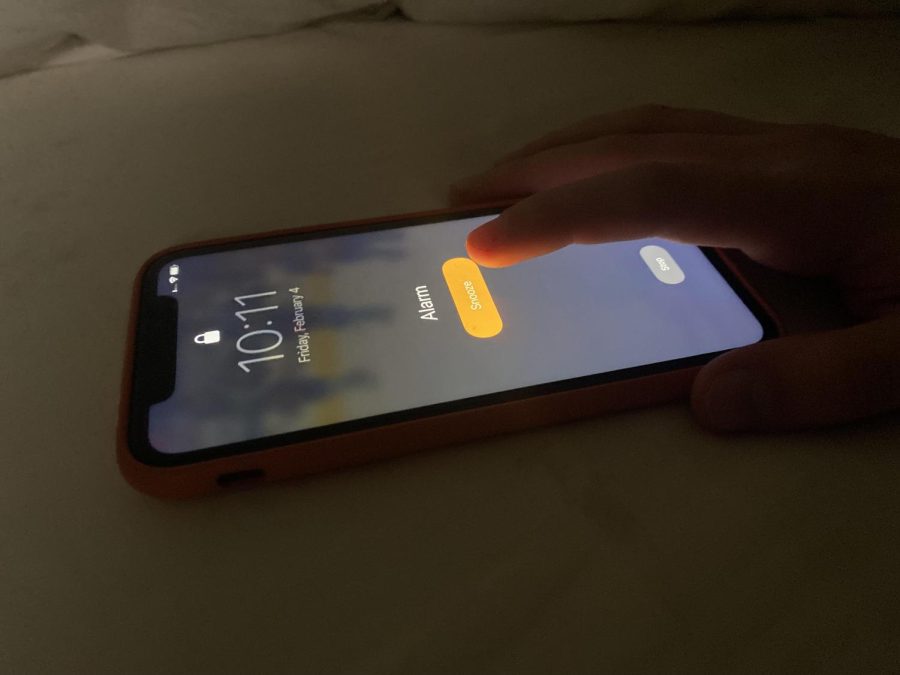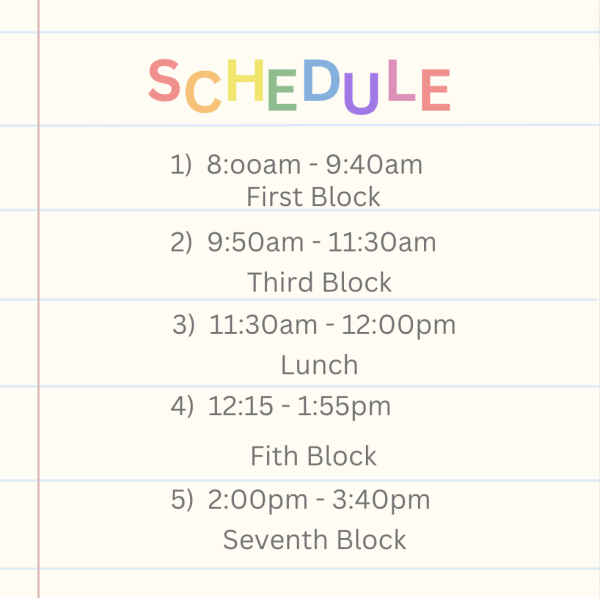Don’t Hit Snooze
You’re sound asleep and wake up to the blaring sound of your alarm. “Just a few more minutes,” you say to yourself. Although it is tempting, do not hit the snooze button.
Each snooze button is typically five to ten minutes long. At the moment, hitting snooze may not seem like a horrible idea, but your alarm is going off for a reason. One snooze turns into another and you end up sleeping in.
Your alarm is going off for a reason. Maintaining a consistent sleep schedule — even on weekends — allows the body to regulate and develop internal habits.
Getting enough sleep is important to overcome hitting snooze. On average, a person needs eight to ten hours of sleep nightly. This means if you wake up at 8:00 a.m., you should be asleep before midnight.
Regularly hitting the snooze button can confuse your brain and teach you that your alarm doesn’t signify the time to wake up. The negative consequences of sleeping in outweigh the extra minutes in bed.
According to South Carolina Internal Medicine, the groggy feeling in the morning is called sleep inertia; it can last up to four house after getting out of bed. Fragmented sleep doesn’t benefit you. Going back to sleep, even for a little time, tells your body that you’re not getting up and it’s okay to go back into “rest mode.” Knowing this, if you’re planning on hitting snooze, set a later alarm.
When your alarm goes off in the morning, you’re usually near the end of your last rapid eye movement (REM) cycle. Medical News Today explains that REM sleep typically starts within 90 minutes of falling asleep and it cycles around every 90 minutes. REM sleep is important to stimulate areas of the brain that are essential for learning and making and retaining memories. When you hit snooze, you disrupt this sleep stage. Five to ten minutes isn’t long enough to return to the REM sleep stage and the disruption can trigger a response that increases your heart rate and blood pressure.
According to Daily Mail, just one week of disrupted sleep could damage long-term health. Sleep science suggests that hitting the snooze button may also leave you feeling drowsy throughout the day. The minutes in bed aren’t proven to help people feel less tired in the morning.
The answer to this problem is simple: do not hit snooze. Immediately getting out of bed may not feel amazing, but it will only get easier and is an essential habit to build.















